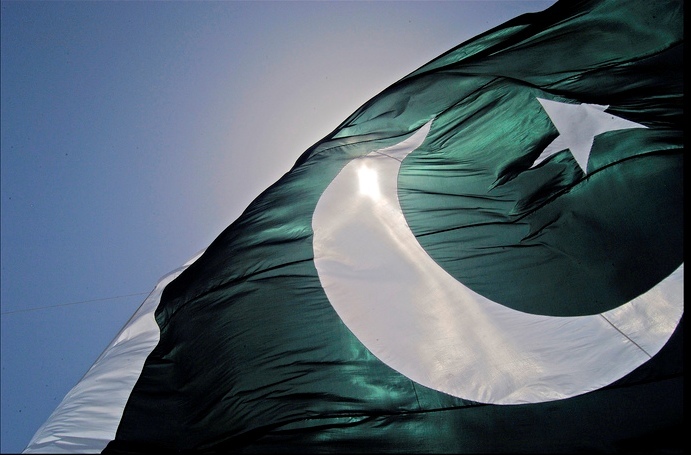While other Islamic countries are busy celebrating Ramadan, the population of Pakistan is struggling with the worst flooding in almost a century. Although the immediate death toll in the disaster zone is comparatively low, when compared to other natural catastrophes like earthquakes or tornadoes, for many Pakistanis, the suffering has only begun. Far over one million people have lost their homes, their belongings, and their livelihood, and millions of others may have kept their house, but may not have access to clean water anymore. Inundations of that magnitude often cause most sources of drinking water to be contaminated with sewage and faeces – even ground water can be affected. Therefore, both local authorities and international relief organizations fear not only a further deluge from the rising river Indus, but also the outbreak of epidemics linked to drinking dirty water.
If you still have some money to spare this month, maybe you can use it to support the people of Pakistan.  Take care to avoid telemarketing fundraisers, though, since they are sometimes employed by for-profit agencies that keep a sizable share of your donation themselves. Instead, rely on established charities such as UNICEF, Oxfam or the ICRC, which have already got helpers in the affected regions. With them, you can also designate your contribution and do some research in their annual financial reports whether your donation actually reached the people who needed it most. Last but not least, you can easily give online on their secure donor sites.
Take care to avoid telemarketing fundraisers, though, since they are sometimes employed by for-profit agencies that keep a sizable share of your donation themselves. Instead, rely on established charities such as UNICEF, Oxfam or the ICRC, which have already got helpers in the affected regions. With them, you can also designate your contribution and do some research in their annual financial reports whether your donation actually reached the people who needed it most. Last but not least, you can easily give online on their secure donor sites.
If you have any particular charity you’d like to recommend, you can also do so in the InterNations Forum.
The impact of 2005 earth quake in Pakistan was visible and hence registered to the nation and the world. However, the full impact of the devastation caused by the 2010 floods of Pakistan is yet to manifest itself. According to estimation 1/5th of the country is under water. Crops are no more. We do not know the correct death toll. We have no valid data. There is a looming threat of epidemics and malnutrition. This threat is just not restricted to the directly afflicted flood victims. It would probably seep through the civil society , lets say by october – december 2010, When it is estimated that the flood water would recede
Millions of homes in thousands of villages and towns have been destroyed. According to reports, over 20 Million people have been affected by this disaster – more than the 2004 Indonesia Tsunami, 2005 Pakistan Earthquake, and 2010 Haiti Earthquake combined and destruction is increasing each day.
Infrastructure such as dams, power stations, roads, bridges, schools, agriculture wells, and drinking water hand pumps have been severely damaged or destroyed.
.
Over the course of July and early August 2010, Pakistan experienced the worst monsoon-related floods in living memory. Heavy rainfall, flash floods and riverine floods have devastated large parts of Pakistan since the arrival of seasonal monsoon rains on 22 July. Assessments of losses and damages are ongoing, but estimates place the number of affected people at more than 14 million. Over 1,200 people have died, and at least 288,000 homes have been damaged or destroyed.
The devastating flood in Pakistan had destroyed more than half of the economy of the country.The country which was already facing several other crises including terrorism,poverty,corruption,illiteracy has now hit by another challenge in the form of flood.At this crucial time ,the world has pledge to help Pakistan in any form .
U.N. Secretary-General Ban Ki-moon arrived in Pakistan on Sunday August 16 2010 to boost relief efforts as concerns grew about the 20 million people made homeless in one of the worst disasters to hit the country.
Authorities said more flood surges were coursing down the River Indus and other waterways in southern Sindh province and were expected to peak later Sunday, causing fresh deluges. The river, which in better times irrigates the crops of millions of farmers, is 15 miles (25 kilometers) wide at some points
Thank you Team InterNations for putting this on your blog. Every word matters, may God bless you for this
Regards,
Ayaz from Pakistan
t: @zayams